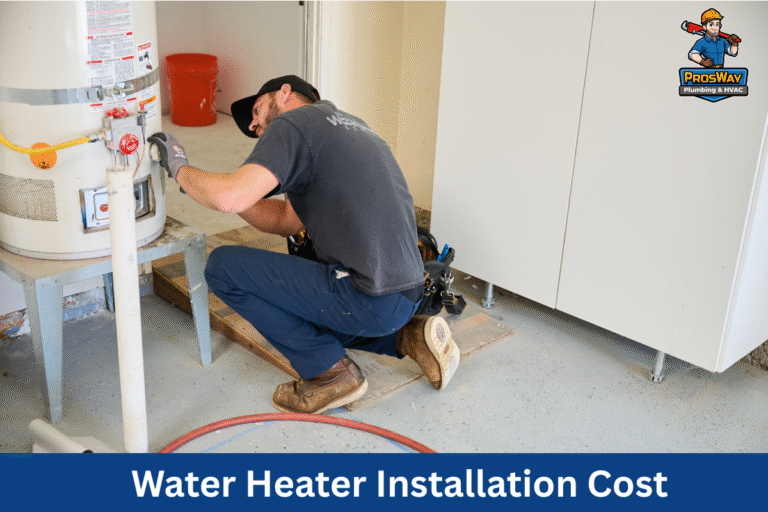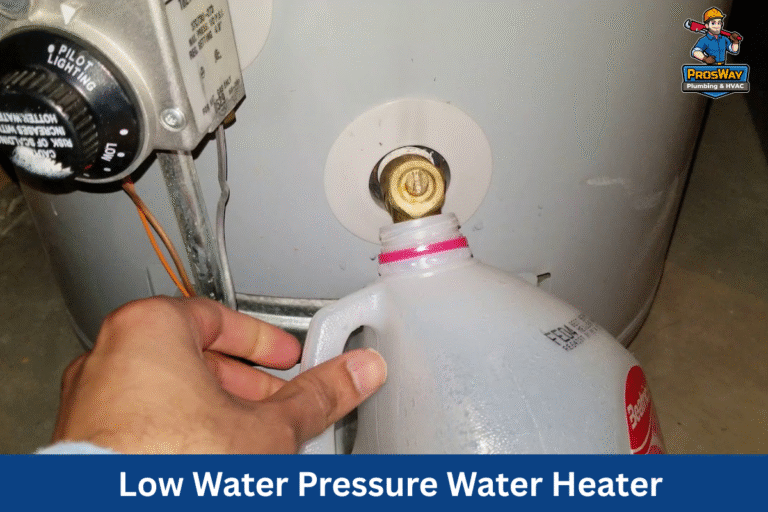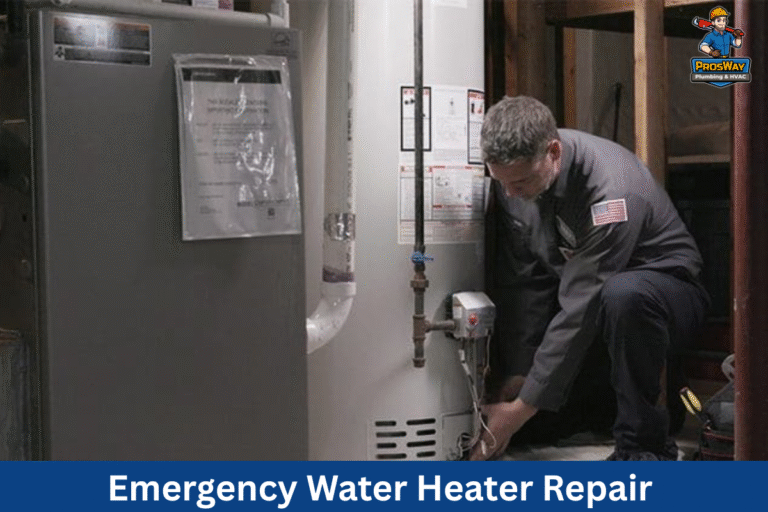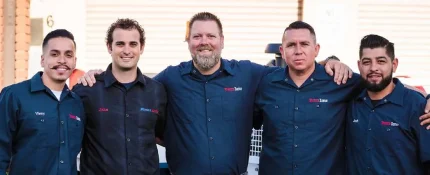Sewer Line Replacement is a critical investment for homeowners, affecting both immediate repair costs and long-term maintenance. Choosing the right sewer line material can prevent future repairs and extend the system’s life.
This article explains various sewer pipe materials available, discusses cost implications, compares longevity, and highlights installation techniques. This guide will help residential property owners in Northern New Jersey make informed decisions.
Key Takeaways
- Different sewer pipe materials offer varying benefits in cost, durability, and installation ease.
- Older materials like clay and cast iron differ significantly from modern PVC, ABS, and HDPE options.
- Long-term value depends on both material performance and proper installation techniques.
- Understanding local conditions and regulations is key to selecting the best material.
What Are The Common Sewer Pipe Materials for Replacement?
The first step in sewer line replacement is to understand the common materials used in this work. Traditional clay and cast iron pipes have been used for decades. They provide natural resistance to chemical corrosion but are prone to cracking and root infiltration over time.
Characteristics of Traditional Clay and Cast Iron Pipes
Clay pipes offer a natural, durable option with a long history of use. Although resistant to chemical damage, they are brittle and susceptible to breakage, especially in shifting soil conditions.
Cast iron pipes are strong and provide excellent noise reduction; however, corrosion over time can lead to leakage and reduced flow capacity.
Advantages of Modern PVC and ABS Plastic Pipes
PVC and ABS pipes are popular today because they are lightweight, resistant to corrosion, and easier to install. They offer smooth interior surfaces.
They reduce clogs and enhance water flow. Their cost-efficiency and longevity make them a common choice for residential projects.
High-Density Polyethylene (HDPE) Piping
HDPE pipes provide flexibility and resistance to chemical damage. They are known for their durability and ability to handle high pressures. Their flexibility also means they can be installed with fewer joints, reducing the risk of leaks over time.
What are Cured-in-Place Pipe (CIPP) Lining Solutions?
CIPP lining is a trenchless technology that rehabilitates existing sewer pipes without extensive excavation. This method reduces installation time and minimizes disruption. It is ideal when the current sewer system is damaged, but the surrounding structure remains intact.
How to Compare Material Strengths and Common Issues?
Each material presents unique strengths and common issues, like susceptibility to corrosion or cracking. For example, while clay pipes may last decades under the right conditions.
They often require maintenance due to environmental impacts. Understanding these characteristics helps in choosing a material that fits both your budget and long-term needs.
How Sewer Line Replacement Costs Vary With Different Materials?
Costs in sewer line replacement can differ significantly depending on the chosen material. Homeowners must consider labor, permitting, and inspection fees. Making informed cost decisions can save money over the system’s life.
Initial Material Purchase Expenses for Each Pipe Type
The cost of sewer line materials such as PVC, ABS, HDPE, or CIPP liner varies. Modern plastics generally offer lower upfront costs compared to traditional cast iron. Budget-conscious owners must weigh initial expenses against performance and longevity.
How do labor charges vary with different pipe materials?
Labor charges differ based on pipe weight and installation complexity. Lightweight PVC and ABS require less support during installation, reducing labor time and cost. Conversely, heavier materials like cast iron demand more manpower and equipment.
Cost Implications of Trenchless Versus Traditional Replacement by Material
Trenchless repairs like CIPP lining may carry higher material costs but reduce labor and restoration expenses. While traditional trench excavation can be disruptive, it sometimes offers a lower material cost, a key factor to consider when budgeting.
Permitting and Inspection Charges Related to Material Choices
Local regulations can drive up costs. Permitting fees and mandatory inspections vary depending on the pipe material installed. Some materials may require additional certifications to meet building codes, thereby influencing overall project expenditure.
What is the total project cost estimate for various sewer pipe materials?
When all factors are combined—material purchase, labor, permitting, and potential repair costs—the total project cost can vary widely. Homeowners should request quotes that include all these elements to fully understand the financial impact before proceeding.
What is the Typical Lifespan of Different Sewer Pipe Materials?

Evaluating how long different sewer pipe materials will last is crucial in planning a replacement project. Longevity affects long-term maintenance.
Projected Service Duration of PVC and ABS Pipes
PVC and ABS pipes typically promise 50 to 70 years of service when installed correctly. Their resistance to corrosion and smooth interior surfaces contribute to this extended lifespan, minimizing clog-related issues.
What is the expected durability of cast iron sewer lines?
Cast iron sewer lines can last an estimated 75 to 100 years but require periodic maintenance due to corrosion and potential root intrusion. Their heavy weight provides durability yet can pose installation challenges.
Resilience and Anticipated Lifespan of HDPE Pipes
HDPE pipes often offer similar or longer lifespans compared to plastics like PVC, with an expected service life of 50 to 100 years. Their flexibility makes them particularly resilient against ground movement.
What is the service life of CIPP liners in sewer systems?
CIPP liners normally last between 50 and 70 years. Their performance is influenced by installation quality and the condition of the existing pipe system. They provide a cost-effective method to rehabilitate older lines without full replacement.
Environmental Factors Affecting Pipe Material Endurance
The type of soil, moisture levels, and nearby chemical exposures all affect material endurance. Areas with aggressive soils may see faster degradation of certain materials, making it critical that homeowners consult with professionals to choose the most suitable option for their local environment.
How does Material Choice Impact Overall Sewer Line Replacement Value?
The selection of pipe material has a significant impact on the overall value of a sewer line replacement project. Not only does the choice affect initial costs, but it also influences future maintenance requirements and property resale value.
What’s the trade-off between initial cost and long-term performance?
Choosing a more expensive, durable material may reduce future repair expenses. While cast iron or HDPE might have higher initial costs, their longevity can lower the total cost of ownership over time.
What are the upkeep costs for different pipe materials?
Flow efficiency and maintenance needs vary by material. Materials that remain smooth and corrosion-resistant, like PVC and ABS, typically have lower upkeep costs than older or more brittle materials such as clay.
The Contribution of Pipe Material to Averting Future Repairs
Investing in high-quality materials can prevent future disruptions and expensive repair work. Advanced materials offer superior performance over time, ensuring fewer emergency repairs and reduced inconvenience.
How does sewer material affect resale value?
Modern, low-maintenance sewer systems increase property value. Prospective buyers often view updated sewer infrastructure as a sign of well-maintained property. Regular sewer line checkups are essential for your home.
Check out this video: Drainage Pipe Material Explained.
What’s the long-term cost of each pipe material?
A thorough analysis should include costs related to maintenance, repairs, and potential system upgrades. This holistic approach helps homeowners see the long-term financial benefits of selecting the right material.
What Factors Should Guide Your Sewer Pipe Material Choice?
Making the right decision for sewer line material depends on multiple factors. Homeowners must evaluate local conditions, building codes, and budget constraints to determine the optimal choice.
Matching Material Properties With Local Ground Conditions and Climate
Local soil conditions and climate play an important role. For instance, heavy soils in cold regions may favor rigid materials like cast iron, whereas areas with shifting soils might benefit from flexible HDPE pipes.
What pipe materials meet local building codes?
Homeowners must comply with local regulations. Strict building codes can require specific materials or installation methods, making professional advice essential for a compliant and long-lasting installation.
Selecting Pipe Material Based on Your Specific Financial Plan
Budget constraints influence material choice. Lower-cost options like PVC might be ideal for those on a tight budget, whereas higher upfront costs for HDPE or CIPP may pay off over time through reduced maintenance.
What materials handle your sewer flow needs?
Assessing the load and volume of wastewater is key. High-flow systems may require stronger, more durable materials to handle increased pressure and prevent frequent repairs.
Obtaining Professional Advice for Optimal Material Selection
Consult professionals who understand regional conditions and available technologies. Expert advice is crucial to avoid hidden costs and ensure the selected material meets both residential needs and local regulations.
What Installation Methods Impact Cost and Timeline?

The chosen installation method will impact not only how fast the job can be done but also the total cost. Different techniques suit various materials and site conditions.
What materials work best with open trench excavation?
Open trench excavation remains a standard method. It allows for direct access to the sewer line and is generally used with materials like cast iron and PVC.
While it may be less expensive in terms of material costs, it often involves extensive labor and restoration work afterward.
What materials and costs are tied to pipe bursting?
Pipe bursting is a trenchless method that replaces old pipes by breaking them apart and simultaneously installing new ones, typically HDPE.
This method minimizes surface disruption, which can be particularly valuable in areas with landscaped yards or limited access.
Slip Lining and CIPP Lining
Slip lining and CIPP lining are cost-effective alternatives that rehabilitate existing sewer lines without full excavation. They generally use a resin-coated liner that hardens in place.
While the upfront cost may be higher compared to a complete replacement, both methods reduce long-term maintenance expenses. For more information, check our sewer line repair services.
How Installation Approach Affect Labor Duration and Material Management?
The chosen installation method determines labor duration and required equipment. Trenchless techniques often shorten project timelines.
And reduce labor costs, although they may require specialized tools and material handling protocols that could affect overall expenses.
What method suits your chosen sewer material best?
Ultimately, the compatibility between the installation technique and the chosen pipe material is crucial. Prospective projects should discuss options with experts to ensure that both material and installation methods are aligned for optimal performance and cost-effectiveness.
Frequently Asked Questions
What are the main types of sewer pipe materials?
Common materials include clay, cast iron, PVC, ABS, HDPE, and CIPP liners. Each type has unique benefits and challenges related to cost, durability, and installation.
How do costs vary with material choice?
Costs vary by material purchase price, labor, and permitting fees. Materials like PVC and HDPE generally offer lower initial costs compared to cast iron.
Can modern installation techniques reduce overall costs?
Yes, trenchless methods like CIPP lining can reduce labor and restoration expenses, offsetting higher material costs and minimizing disruption.
How should I decide which material to use?
Consider local ground conditions, building regulations, budget, and expert advice. This comprehensive approach ensures you select the best material for long-term value.
Final Thoughts
Sewer line materials, their costs, and longevity are essential for making informed replacement decisions. From traditional clay and cast iron to modern PVC, HDPE, and CIPP solutions, each option offers its benefits and challenges. Homeowners should weigh upfront costs against long-term benefits while considering local conditions and professional guidance. This informed approach will ensure a durable and cost-effective sewer solution for your home.
Need to Replace Your Sewer Line? Call ProsWay
Choosing the right sewer line material can save you thousands in future repairs and boost your property value. Let ProsWay Plumbing & HVAC guide you with expert advice tailored to your home and budget. Call us now at (862) 260-5870 or Book Online today for a personalized quote!








